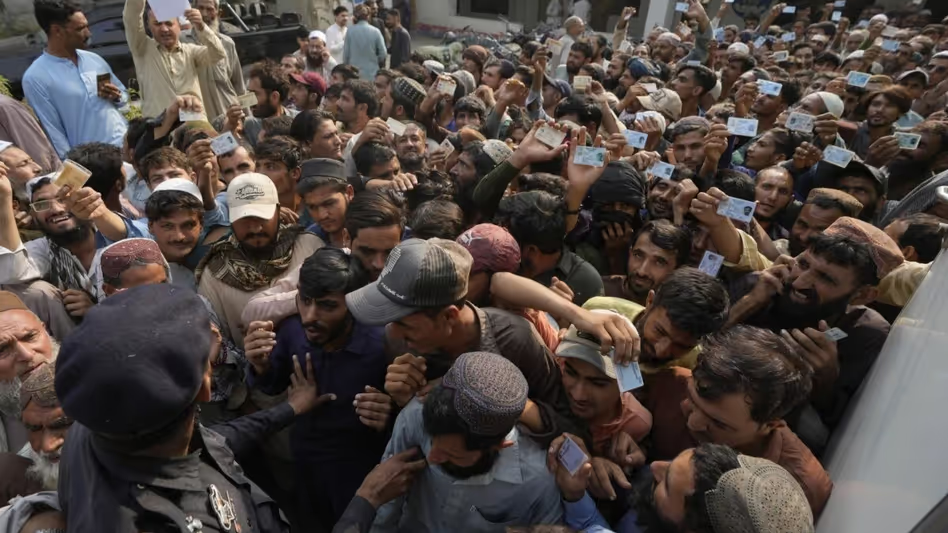Afghan migrants living in Pakistan and Iran are urgently calling on the international community to step in, as reports of arrests, mistreatment, and forced deportations continue to rise. Many of these migrants are now facing a humanitarian crisis, with their futures uncertain. According to Tolo News, thousands of Afghans are being affected every week.
Many migrants say they are being detained even though they hold valid documents such as the Proof of Registration (PoR) or Afghan Citizen Cards (ACC). “There are 1.4 million holders of PoR cards and 800,000 holders of ACC cards living here,” one Afghan migrant told Tolo News. “These people have businesses and cannot wrap up and relocate their work in just one or two months.”
The International Federation of Red Cross and Red Crescent Societies (IFRC) has responded to the crisis by launching an emergency appeal. The organisation aims to provide support for returning Afghan migrants who may lack food, shelter, and access to healthcare once back in Afghanistan. “This is a fast-growing crisis and needs strong international cooperation,” the IFRC said in a statement.
Human rights groups like Amnesty International have also raised serious concerns. They say Pakistan is violating the international law of non-refoulement, which protects refugees from being sent back to places where they may face persecution. “Deporting Afghan refugees, especially women and girls, puts them at serious risk,” Amnesty said. “They may lose access to education, safety, and jobs.”
Meanwhile, Afghan migrants in Iran are also facing problems. After some census documents were declared invalid, migrants visiting the Kafalat office in Iran were given exit permits, forcing them to leave the country. This sudden move has raised alarms among aid groups, as many of these migrants are not ready to return.
Migrant leaders are calling on international organisations such as the UNHCR and the International Organization for Migration (IOM) to start urgent talks with the governments of Pakistan and Iran. “We need real solutions, not just promises,” a migrant said. “We are asking for fair treatment, not handouts.”
Emma Cherniavsky of the UK-based aid group Choose Love added, “The mass deportation of Afghan migrants is not only dangerous but deeply inhumane. We call on world leaders to speak out and take action before more lives are destroyed.”
The situation remains tense, and without fast international help, Afghan migrants face more suffering. Global refugee organisations are urging host countries to honour their responsibilities under international law and to treat Afghan refugees with dignity and care. The world is now watching—and waiting—to see what happens next.

